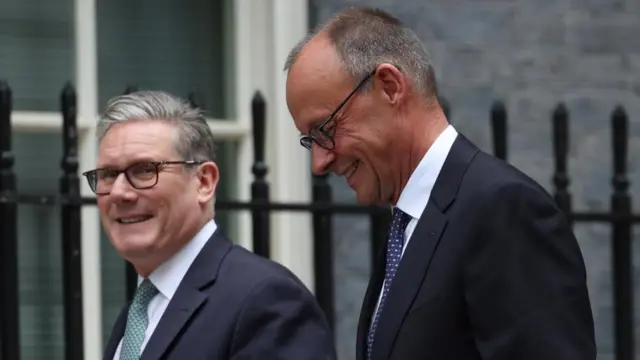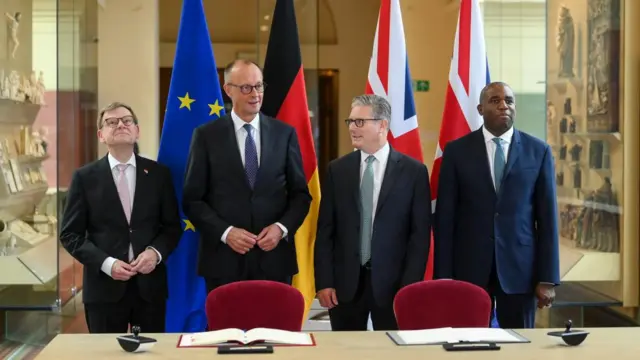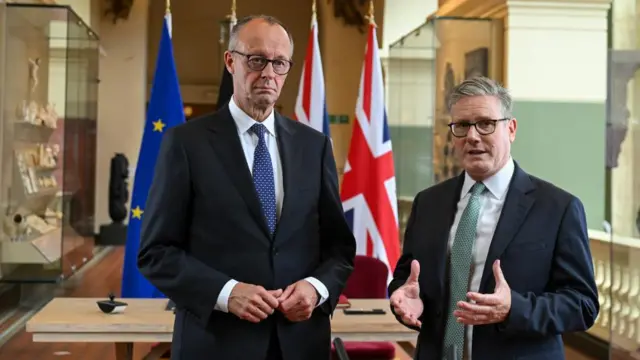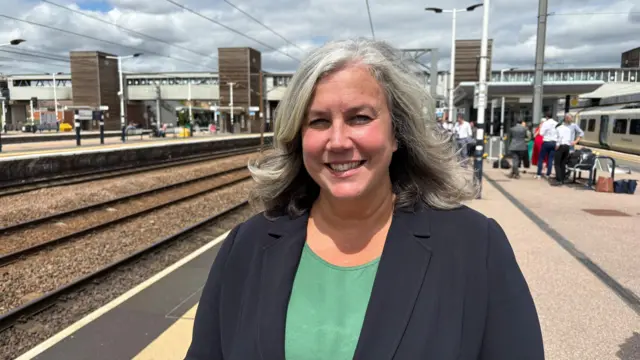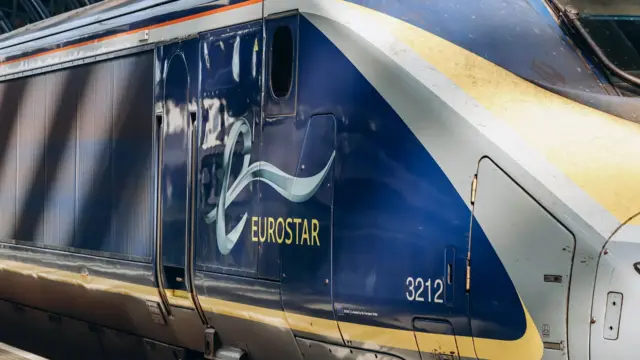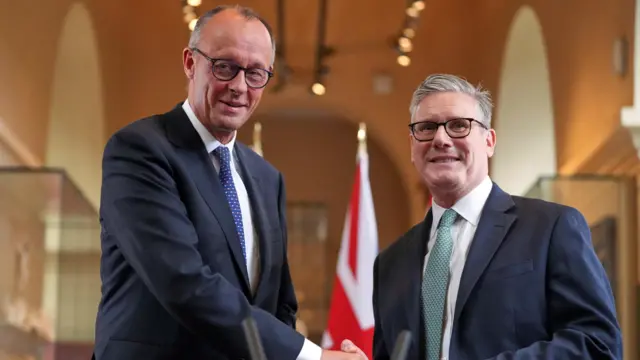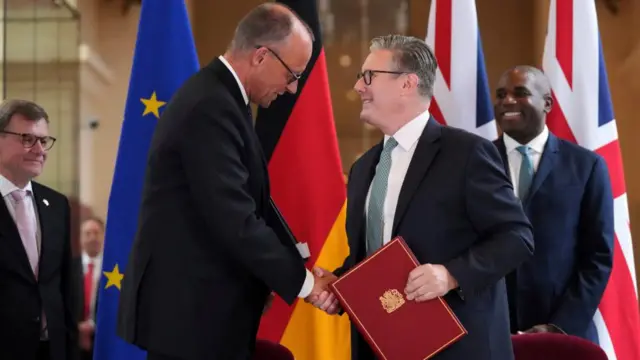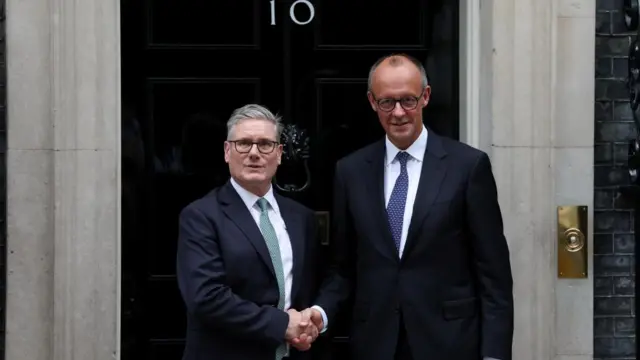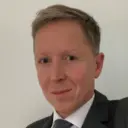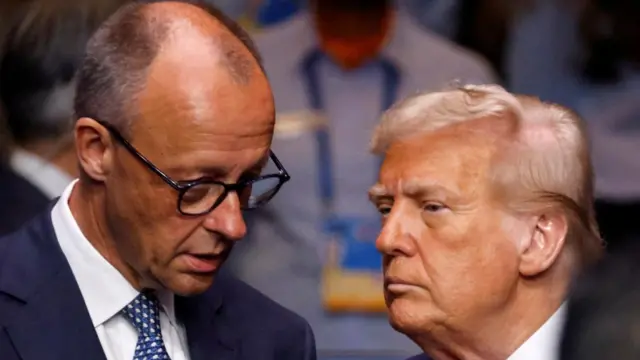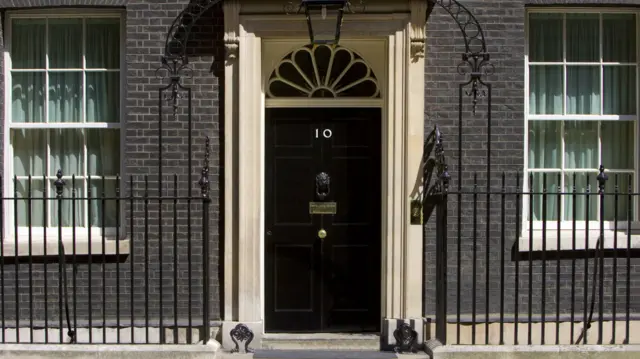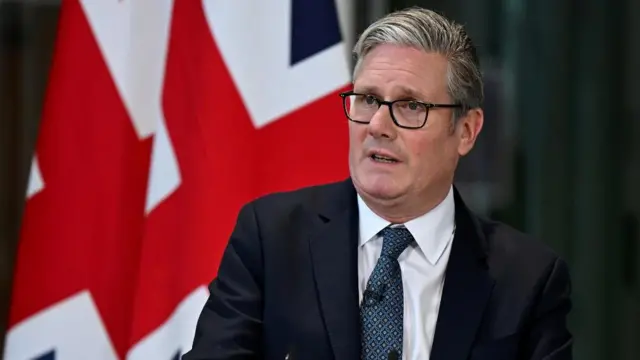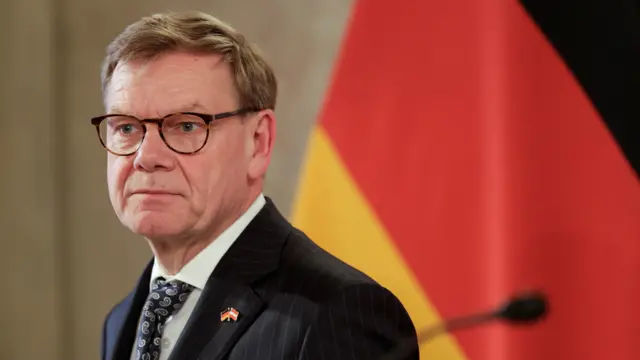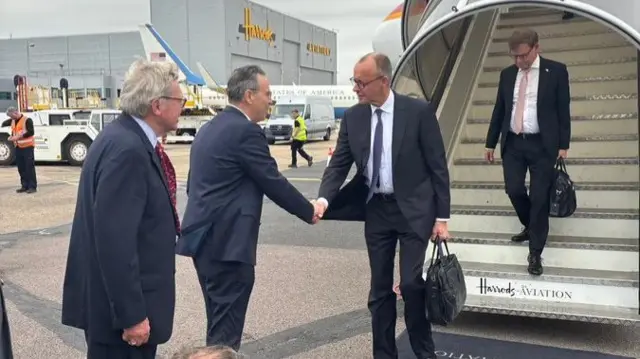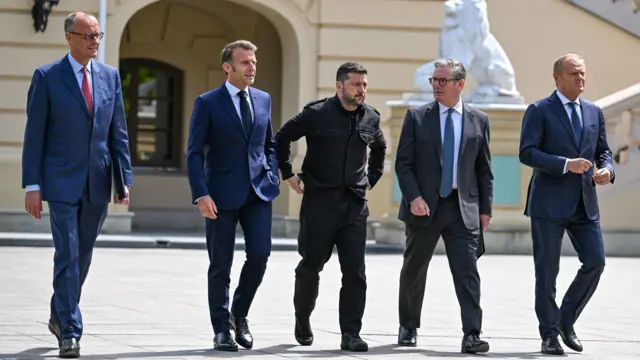Brits can use German e-gates ahead of new security schemepublished at 14:59 BST 17 July
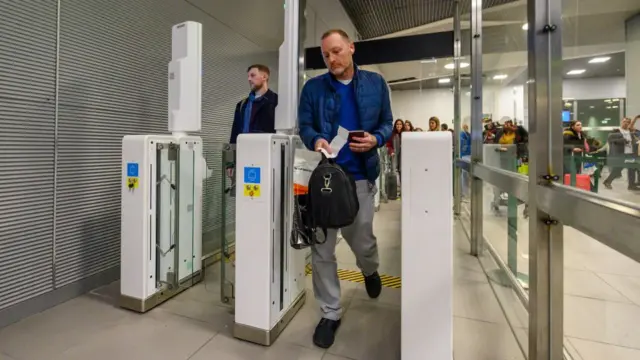 Image source, Getty Images
Image source, Getty ImagesAs we have been reporting, frequent travellers from the UK to Germany will be allowed to use e-gates upon arrival by next month, with all UK nationals able to use them "as soon as technically possible".
Since the UK left the EU bloc, many popular holiday destinations have seen long queues of British travellers at airports as they wait for passports to be checked.
UK citizens can expect to be able to use e-gates across the EU in October - when a new scheme is planned to come into effect which enhances border security.
The new European Entry Exit Scheme (EES) gathers biometric data on citizens arriving in the EU from non-member, third party countries which the UK is since Brexit.
At the UK-EU summit in May, it was agreed that there was no legal barrier to UK citizens using EU e-gates.
The Cabinet Office says that since then, e-gates access for travellers from the U has increased in Bulgaria, the Czech Republic and Portugal.
